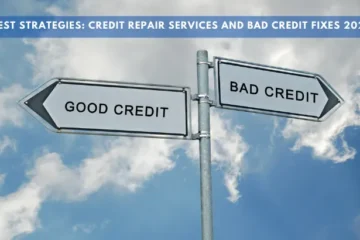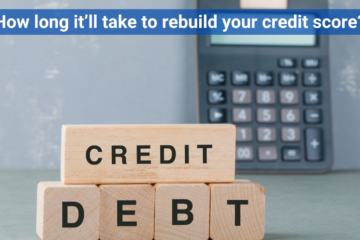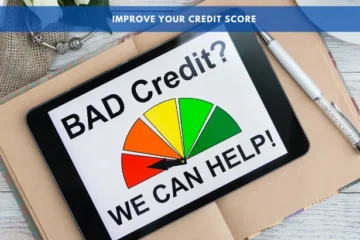Some say money can’t buy happiness, but every aspect of your personal finances affects your emotional and physical well-being — from the money you have in the bank to your credit card balances. In addition, everything in your life will have an impact from your creditworthiness and overall financial standing, from where you live to what you drive and from what you eat to where your children go to school.
You may try to block out the developing negative emotions by avoiding your financial situation entirely when your financial situation goes from comfortable to rocky. Avoidance will not help you and it can also be harmful. Consider these tips to help you overcome your fears and work toward a more secure financial future if you’re tempted to ignore the problem.
Checking Your Credit Report
Checking your credit report can feel like checking your report card in grade school, unless you have an outstanding credit history. As of 2019, credit reports include information about open accounts and amounts owed, length of your credit history, late payments histories, accounts in collections, new credit inquiries and more. It’s only natural to hesitate to review it if you have a rocky credit past.
The Solution: Focus on Your Potential. Even if you’re not where you want to be you, will get a lot of benefits from checking your credit. You’re entitled to get a free credit report from each of the three credit bureaus every year. It can help you know where you’re struggling the most by looking over these reports. If you face your credit fears, you’ll know where you’re doing well, and if there are any mistakes that are negatively affecting you.
Checking Your Credit Scores
You know you have a personal credit score if you’re the same with most consumers. To be honest, you actually have dozens of credit scores. That’s right — dozens. Not all scores measure the same factors the same way. This makes it hard for consumers to know which scores to give more weight.
The Solution: Go Straight to the Source. Refer to your educational credit scores if you just want to get a general overview of your credit-worthiness. However, if you want to know about your chances of getting good rates on a home loan, refer to your FICO score – the number 1 rating which 90% of lenders use when making lending decisions.
Debt
The average credit card debt an American household carries is almost over $8,000. You can have poor credit and the inability to cover monthly expenses and unwanted stress when you have huge amounts of debts. Ranging from mortgage payments to student loans to medical expenses, debt comes in many forms. It may be tempting to take on an out-of-sight, out-of-mind approach if you’ve got a sky-high debt. However, the problem with this attitude is that it can result in compounding interest, late fees and dents to your credit score, all of which make your financial situation worse.
The Solution: Financial Counseling. It’s quite easy for anyone to get into debt but very difficult for most people to climb out of it. Don’t be ashamed to reach out to a financial planner or credit counselling agency if you need help getting your personal finance and liabilities under control. The right person can assist you in putting your situation into perspective, prioritizing your payments and developing a feasible repayment plan.
Savings
If you don’t have an ample nest egg, you’re not alone. According to new figures from Statistics Canada, Canadian households had average net savings of $852 in 2018. They highlight that some of the lowest earning households such as retirees with pension funds have significant wealth but have negative net savings, as they are drawing on those assets rather than receiving wages. Two of the most common reasons for such low savings rates are low salary and living paycheck to paycheck.
The Solution: Start Small. You are not required to bring home a substantial amount of money to prioritize saving. Consider both your monthly budget and your average spending and decide where you can make cuts. Opt out of that $7 monthly subscription you seldom use and start to make coffee on the weekdays instead of buying a gourmet latte every morning. Giving up little expenses like these can add up to millions over time.
Lack of Knowledge
Knowledge on the subject of credit and finances is not instinctive. No matter how successful or educated a person may seem, chances are he or she has a lot of financial-related questions as you and any other average consumer. Lack of knowledge is never an excuse to not get your affairs in order.
The Solution: Make Learning a Habit. Educating yourself about finances or credit factors doesn’t have to be difficult or a burden. There are lots of free resources available online (including this blog) for individuals who want to know more about the factors that affect their credit scores, retirement and paying off debt. You don’t need to spend a lot of time in reading to help improve your financial knowledge. You can make it a point each week to read 1 or 2 finance-related articles. Arming yourself with the correct knowledge can take the fear out of finances and can also equip you to make informed decisions that will better your financial future. It is never too late to know more about your personal finance and credit.
Take the path to a secure financial future. Credit Repair Now’s team of professionals have been helping clients repair their credit for over a decade. Call us today for a personalized credit consultation and to learn more about our credit repair services.




